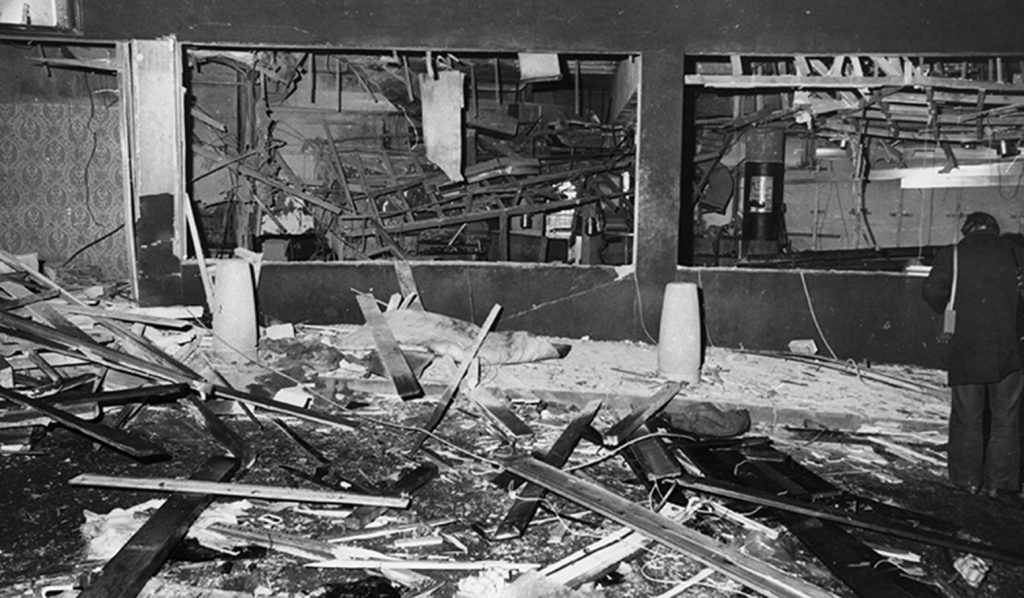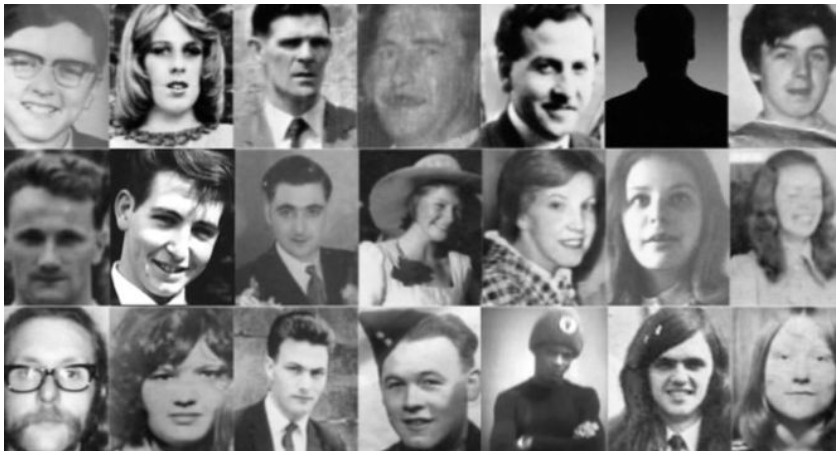THE long-awaited inquests into the 1974 Birmingham pub bombings which killed 21 people have gotten underway with a minute's silence for the victims.
An 11-strong jury of six women and five men were sworn in by coroner Sir Peter Thornton QC on Monday for the first day of the hearings at Birmingham Civil and Family Justice Centre – which are expected to last up to six weeks.
The inquests are the culmination of decades of campaigning by families of the dead to establish an account into the circumstances of that fateful night.
On November 21 1974, two bombs planted by the Provisional IRA ripped apart Birmingham's Mulberry Bush and Tavern in the Town pubs, killing 21 and wounding 220.
A third bomb, jurors heard, was planted near the Barclays Bank on the Hagley Road but failed to properly detonate that evening.
Six innocent Irishmen were arrested within hours of the blasts and jailed for 16 years before their convictions were quashed in 1991, in what is seen as one of the worst miscarriages of justice in British legal history.
In his opening statement on Monday afternoon, Sir Peter told the jury that the inquests would not deal with the issue of who planted the bombs as that was "the task of police, prosecutors and criminal courts".
He told jurors they would hear evidence alleging British security forces may have had some forewarning of the attacks, including an "overheard" conversation which took place in prison two weeks prior to the atrocity.
Adjourning the inquests until Tuesday, Sir Peter added that "nobody has been successfully prosecuted for the attack" and explained how the Birmingham Six were freed on appeal in 1991.
"Nobody is on trial here, an inquest does not decide matters of criminal or civil liability, and this is not a question of attributing blame to any individuals," he said.
 Families of the victims have long fought for inquests into their deaths at the hands of the Provisional IRA
Families of the victims have long fought for inquests into their deaths at the hands of the Provisional IRAThe bombings were the deadliest attacks on civilians on the British mainland since World War 2, and held the grim record until the July 7, 2005 London terror atrocities.
The blasts were carried out at the height of an IRA bombing campaign in the West Midlands which saw "over 50" incidents involving bombs and incendiaries “in and around Birmingham” in 1973 and 1974, the coroner said.
After the pub bombings "the campaign in the West Midlands stopped", Sir Peter added, before telling the jury it would be a matter for them to decide whether the IRA called off the campaign because of the "outrage of civilian deaths on this scale" or "some other reason".
He said only a small number of eyewitnesses would give testimony as many were "no longer alive".
Hearings will continue on Tuesday and Wednesday with pen portraits of each victim, while jurors will visit the former sites of the two bombed pubs on Thursday.


